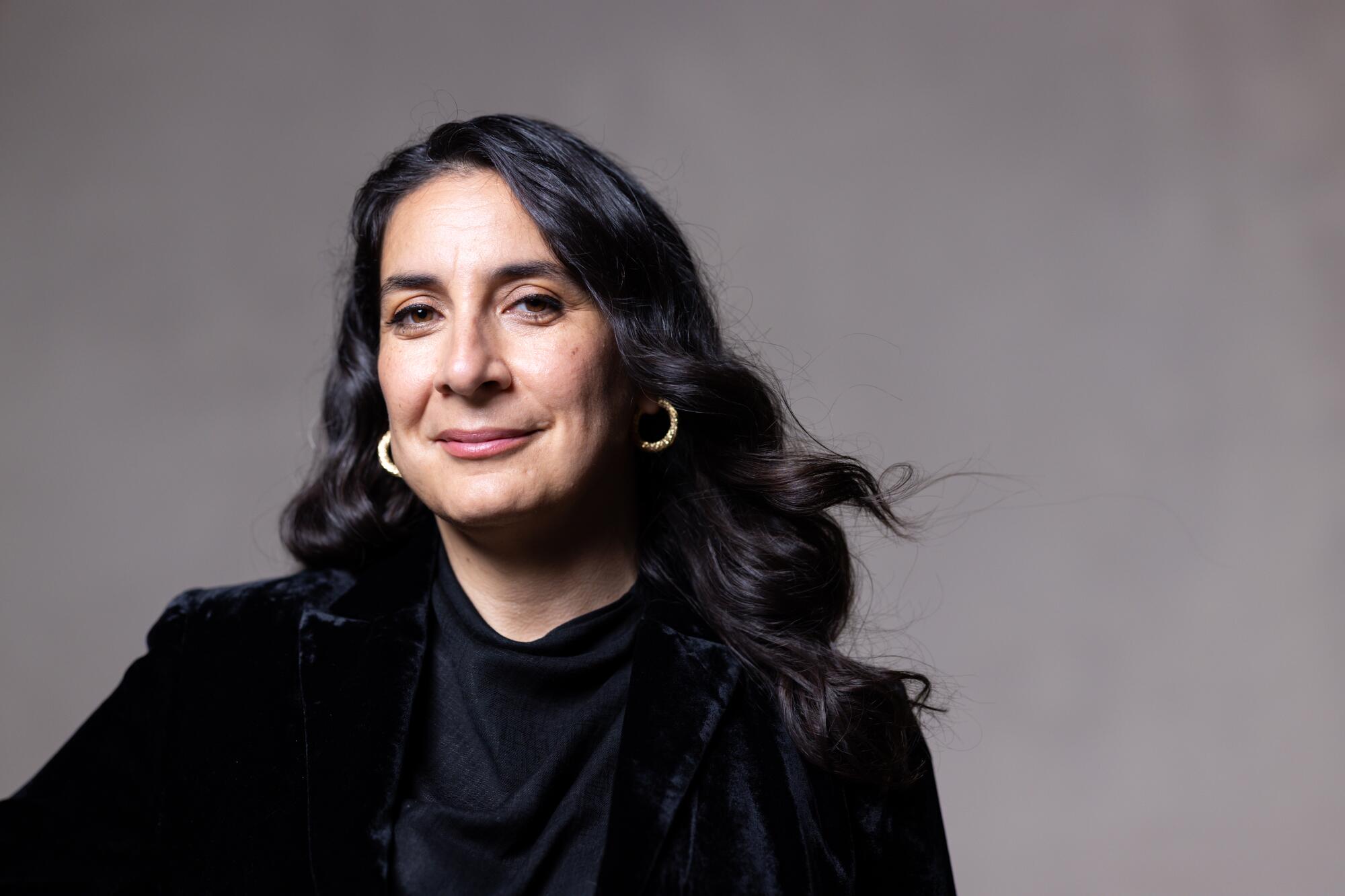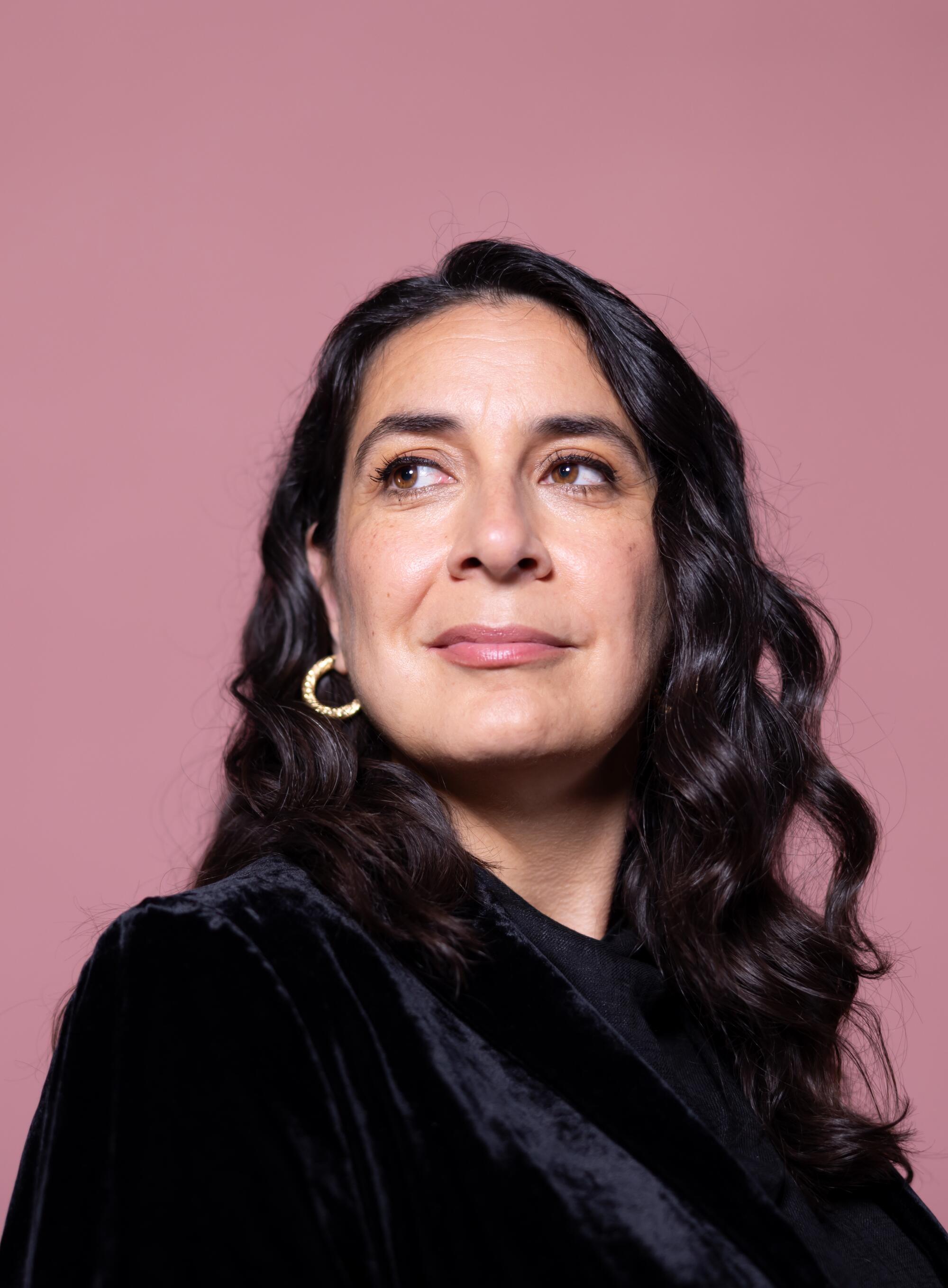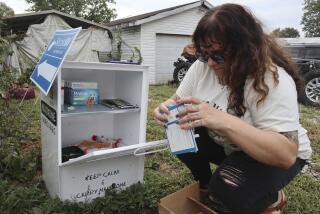
- Share via
When Shoshanna Scholar first stopped into a syringe exchange, “it blew my mind,” she said.
It was loud and fun, she said, a place where people were not only getting clean syringes to avoid HIV and hepatitis, but were also making art and teaching one another.
“It was super clear that people who use drugs were shaping this beautiful space” where they were treated with compassion, Scholar said.
Discover the changemakers who are shaping every cultural corner of Los Angeles. L.A. Influential brings you the moguls, politicians, artists and others telling the story of a city constantly in flux.
Scholar, 50, grew up in the Canadian province of Saskatchewan, moved to Los Angeles and worked a grab bag of jobs before she visited the syringe program in Hollywood with a friend who was providing legal assistance there. Within a year, she’d become the director of the organization, now known as Community Health Project L.A. It was a shoestring operation, and Scholar sometimes had to charge supplies on her personal credit card.
“Our governments weren’t ready to support us” at that time, she said.
That has changed in Los Angeles, and Scholar is a part of that change. She now heads the Harm Reduction Division in L.A. County’s Department of Health Services. Her work has helped marshal the power of county government behind practical strategies for reducing the negative effects of drug use and addressing it as a health issue rather than a criminal one.

Here’s what that looks like: Case managers assisting people who have been in trouble for minor crimes involving drugs or sex work. Naloxone, the medicine that can reverse an opioid overdose, being provided in L.A. County jails and handed out freely on the streets.
When Scholar proposed getting naloxone into jails, “I thought, ‘I don’t know how you’re going to sell this to law enforcement,’” said Peter Espinoza, who was director of the L.A. County Office of Diversion and Reentry when Scholar was hired in 2017. “But she was able to do it — and it was a huge success.”
Her division works hand-in-hand with community groups, funding teams that thwart overdoses on the streets and distribute clean syringes and other supplies to prevent infections.
“We now have decades of evidence that this approach works,” she said.
The philosophy of harm reduction is far from universally embraced, and its next frontiers could be especially controversial, as state and local lawmakers weigh whether to establish supervised sites where people could use drugs and be rescued from overdose. Americans have been divided on the idea, despite research crediting such programs with reducing overdose deaths.
But Scholar has been skilled in getting people “to coalesce around ideas that aren’t necessarily natural to them,” Espinoza said.





